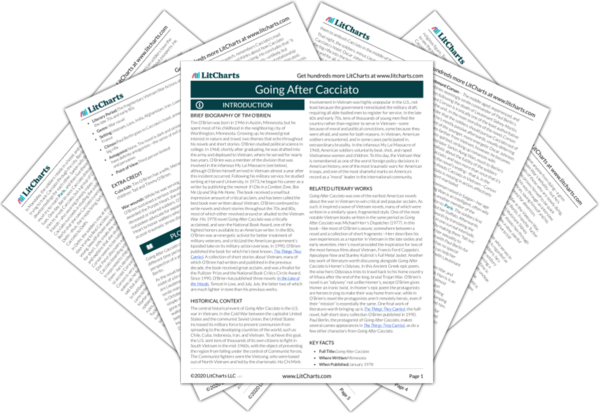Previous
Chapter 35
|
Previous
Chapter 35
|
Going After Cacciato: Chapter 36 Summary & Analysis |
Next
Chapter 37
|


Upgrade to unlock the analysis and theme tracking for all of Going After CacciatoGoing After Cacciato!
Get LitCharts A+